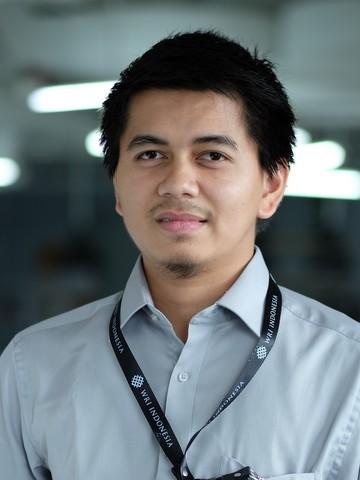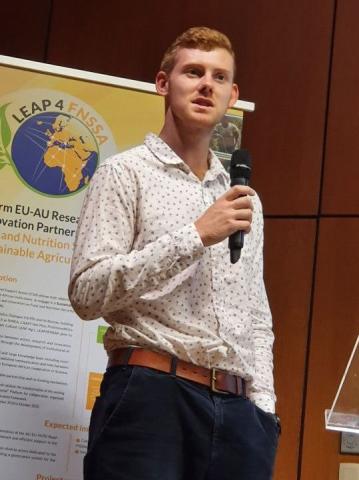
IAMCR and the Food and Agriculture Organization of the United Nations (FAO) are delighted to announce the 2024 IAMCR/FAO Rural Communication Services Awards winners. These awards recognise outstanding research that advances our understanding of Rural Communication Services (RCS) in areas such as agriculture, family farming, natural resource management, climate change adaptation, food security, and disaster risk reduction and management.
The winners of the 2024 IAMCR/FAO Rural Communication Services Awards are:
- Group Model Building as a Rural Communication Process Supporting Innovation Adoption in Agriculture
by Ibnu Budiman (Bogor Agriculture University, Indonesia)
- Strengthening Innovation Structures as a Pathway to Weave People Together Around Shared Priorities: Perspectives from an Agricultural Innovations System Diagnostic in Mpumalanga, South Africa
by Tim Fry (University of Reading, UK)
- Enhancing the Functions of Rural Communication Services to Promote Innovations through the Multidimensional Model for Change
by Paolo Mefalopulos (UNICEF,Chile)
The award-winning papers will be presented at a special panel organized by the Rural Communication Working Group on Thursday, 4 July, at 8:30 AM at the Distinction Hotel Cathedral South during the IAMCR 2024 conference in Christchurch, New Zealand.
The selected papers will also be published in a FAO/IAMCR publication, contributing to the global discourse on rural communication and sustainable development.
Watch this video with Rico Lie, Chair of the IAMCR/FAO Award Selection Committee, announcing the award winners, and short statements by the accomplished individuals themselves.

Ibnu Budiman
Ibnu has been working for ten years as a researcher and consultant in environmental management and sustainable development - on themes of food and agriculture, from various perspectives; socio-ecological systems, policy, governance, finance, and technical aspects. Former fellow of the World Bank, World Resources Institute, and Global Alliance for Improving Nutrition. He has been advising international and national public authorities, such as the EU, ADB, UNDP, UNIDO, the Government of Indonesia, and JICA. Ibnu published more than 30 research publications and around 30 op-ed pieces. He is a PhD candidate with an MSc in environmental policy from Wageningen University and Research.
Abstract
Group model building as a rural communication process supporting innovation adoption in agriculture
This study investigated how group model building as a rural communication process helps to support innovation adoption in dairy farming in Indonesia. We found group model building (GMB) becomes a co-creation of system dynamics models with stakeholders, whose collective knowledge and expertise provide insights into the structure and parameters associated with the agriculture innovation system. The GMB supported discussion and communication among rural stakeholders on four aspects; 1. mental maps on agriculture innovation problem, 2. revealing barriers in innovation adoption, 3. identifying technology transfer strategy, and 4. revealing impact of innovation. The GMB workshops generated and exchanged knowledge among the rural stakeholders on the four topics. Also, it shared the research ownership with the rural stakeholders. Group Model Building serves as a powerful tool for enhancing rural communication processes related to agriculture innovation adoption by fostering dialogue, building shared understanding, identifying barriers and solutions, enhancing decision-making, promoting ownership and empowerment, and facilitating networking and collaboration among stakeholders.

Tim Fry
Tim Fry is a practice-focused PhD student at the University of Reading, researching modes of governance that speed equitable food systems transformations in Mpumalanga, South Africa. He focuses on systems innovation, developing multi-stakeholder understanding of collective agricultural challenges, facilitating the co-development of responsive innovation portfolios, and building adaptive communication processes to build systemic resilience. Tim has also led monitoring, evaluation and learning for the Long-Term EU AU Partnership for Food and Nutrition Security and Sustainable Agriculture, Fairtrade, and Street Child, and continues to work with European and African organisations to link multi-scalar communication processes to scale innovations.
Abstract
Strengthening Innovation Structures as a Pathway to Weave People Together Around Shared Priorities: Perspectives from an Agricultural Innovations System Diagnostic in Mpumalanga, South Africa
Tim’s paper presents key findings from a Participatory Action Research (PAR) study undertaken in 2023 that investigated the influence of neo-colonial and neoliberal path dependencies on the equity of Mpumalanga’s agricultural education and training (AET) system. This study utilised an agricultural innovation system (AIS) lens to assess the institutional environment for communication processes within Mpumalanga’s AET system and to add to the evidence base for rural communication services (RCS) as a systemic enabler for equitable development. Research facilitated collective reflection from a multi-stakeholder on the role of AET as a system-enabling mechanism that supports multi-dimensional communication. Research methods included incorporating considerations of the influence of neoliberal path dependencies to provide a dynamic window to assess the quality and equity of communication processes and the extent these are enabled/ hindered by the actors, infrastructures, and economic and regulatory norms that constitute Mpumalanga’s AIS. This study identified that neoliberal economic structures and discursive resonance around productivist pathways for smallholder development have effectively blocked communication services from enabling interactions between actors with varied knowledge, resources, and skills. Further, this study identified that structures that support industrial agriculture have been strengthened, while it is apparent that there is an absence of structures that enable interactions between groups to identify opportunities to increase systemic resilience. We argue that to equitably combat novel and ongoing wicked problems, there needs to be an increased focus on developing multi-stakeholder and multi-level communication processes that bring diverse actors together around common priorities and complementary access to resources, skills, and knowledge.
Paolo Mefalopulos
Paolo Mefalopulos has worked as UNICEF Representative in Uruguay and currently in Chile. He has a long trajectory in the field of communication for social and behavior change with UNESCO in the Middle East and Guatemala, FAO in Zimbabwe, the EU in Colombia, the World Bank in Washington and UNICEF in India as Chief of the C4D program. He taught courses on communication and media studies at the University of Texas at Austin, where he obtained his PhD in International Communication. He authored several articles and books on C4D, with a focus on participatory communication. Most recently he worked on a systemic model for social and behavior change: the Multidimensional Model for Change.
Abstract
Enhancing the functions of Rural Communication Services to Promote Innovations through the Multidimensional Model for Change
The paper aims to provide a map to improve the effectiveness of Rural Communication Services by framing them within the Multidimensional Model for Change. This model, still rooted in a participatory approach, identifies and assesses key elements needed to promote change in each of the three basic dimensions: 1) Public Policy; 2) Institutional/ Organizational; and 3) Socio-Cultural. Elements that need to be addressed to facilitate change at the individual level.
Members of the Selection Committee
- Rico Lie (Chair), Wageningen University and Research, the Netherlands | IAMCR RUC, Global Research Initiative – Rural Communication (GRI-RC)
- Mario Acunzo, Food and Agriculture Organization (FAO), Italy | CCComDev
- Elske van de Fliert, The University of Queensland, Australia | Global Research Initiative – Rural Communication (GRI-RC)
- Maria Stella C. Tirol, University of the Philippines Los Baños, the Philippines | CCComDev, Global Research Initiative – Rural Communication (GRI-RC)